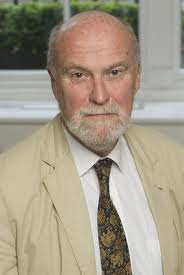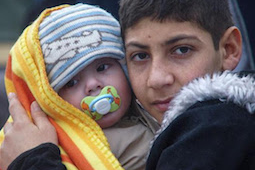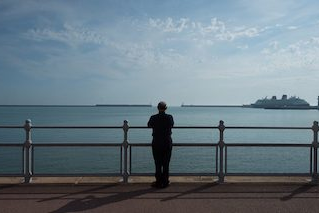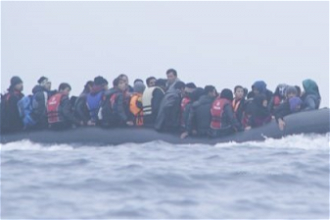Ian Linden: The Illegal 'Illegal Migration Act'

Professor Ian Linden. Image: RCDOW
The Court of Appeal ruled on 29 June that Rwanda was not a 'safe third country' and deporting asylum seekers there was unlawful. Given this judgement the drafters of the Illegal Migration Act might be complimented on their foresight in the wording of the bill's title. The Act has been called unworkable, 'morally unacceptable' (Bishop Paul McAleenan) and 'amounting to an asylum ban' (the UNHCR). Its contents in their lack of human empathy could have been generated by AI. In the words of the Director of the Jesuit Refugee Service, Sarah Teather, to "deny sanctuary to people who need it based on their mode of arrival is grotesquely cruel".
Prime Minister Rishi Sunak has declared he will achieve what he calls his five 'people's priorities'. The fifth reads: "We will pass new laws to stop small boats, making sure that if you come to this country illegally, you are detained and swiftly removed".
Last year some 90% of the boat people who reached the UK sought asylum. By the beginning of this year only 3% of them have received an initial decision from the Home Office. More than 135,000 asylum applicants were awaiting a decision, many of them in hotels paid for out of the UK aid budget; 89,000 of them had been waiting for more than six months.
This is the context within which the Prime Minister has chosen to back this bad bill. Is he serious?
Sunak excuses the draconian contents of the Illegal Migration Act on grounds of compassion. 56 people, 11 of them children, are known to have drowned trying to cross the Channel since 2018. He argues that the people smugglers' business model will collapse if would-be migrants believe they will be sent to Rwanda. If there were a well-funded special unit in the National Criminal Agency (NCA) dedicated to the arrest of these criminal gangs, if there were adequate accessible safe and legal routes for asylum seekers to get here, his compassion argument might carry conviction. If migration policy is compassion driven, why has the Conservative Party in the Commons voted down Lords amendments to the bill containing such provisions?
The Conservatives believe that their bill is a direct response to the democratic will, or, at least, the will of voters in the Red Wall constituencies who want to see an end to small boat crossings. And Kent County Council as well as Dover genuinely are overwhelmed because so few councils around the country are willing to 'burden-share' (and most of these are Labour Councils) - a microcosm of the European Union's predicament.
But just how popular is the Illegal Migration Act? How many people are thinking this harsh action is not our idea of British values? In the House of Lords we were hearing voices speaking for another, kinder Britain: Lord Dubs, who before the Second World War was brought to Britain on the kindertransport, concerned for the needs and protection of unaccompanied children. Then there was Baroness Mobarik, who aged six accompanied her family from Pakistan to Glascow, speaking alongside David Walker, the Anglican Bishop of Manchester against government attempts to weaken limits on the detention of immigrant children and pregnant women. Isn't the welcoming of Ukrainian refugees, in which we take pride, more in keeping with what we want Britain to be?
The under-appreciated Upper House of Parliament - without veto power - is doing its job, holding government to account, scrutinising its legislation and trying to make the bill less bad. Between 27 April and 10 July, peers worked on 20 pertinent, important and compassionate amendments. A large cross-Party group outvoted the Conservative peers on each of the amendments and sent the bill back to the Commons. (There had also been also 16 Conservatives in the Commons who denounced aspects of the bill and abstained during its initial readings - including former Home Secretary and Prime Minister, Theresa May.)
To read on see: www.ianlinden.com/latest-blogs/the-illegal-illegal-migration-act
Professor Ian Linden is Visiting Professor at St Mary's University, Strawberry Hill, London. A past director of the Catholic Institute for International Relations, he was awarded a CMG for his work for human rights in 2000. He has also been an adviser on Europe and Justice and Peace issues to the Department of International Affairs of the Catholic Bishops Conference of England and Wales. Ian chairs a new charity for After-school schooling in Beirut for Syrian refugees and Lebanese kids in danger of dropping out partnering with CARITAS Lebanon and work on board of Las Casas Institute in Oxford with Richard Finn OP. His latest book was Global Catholicism published by Hurst in 2009.


















